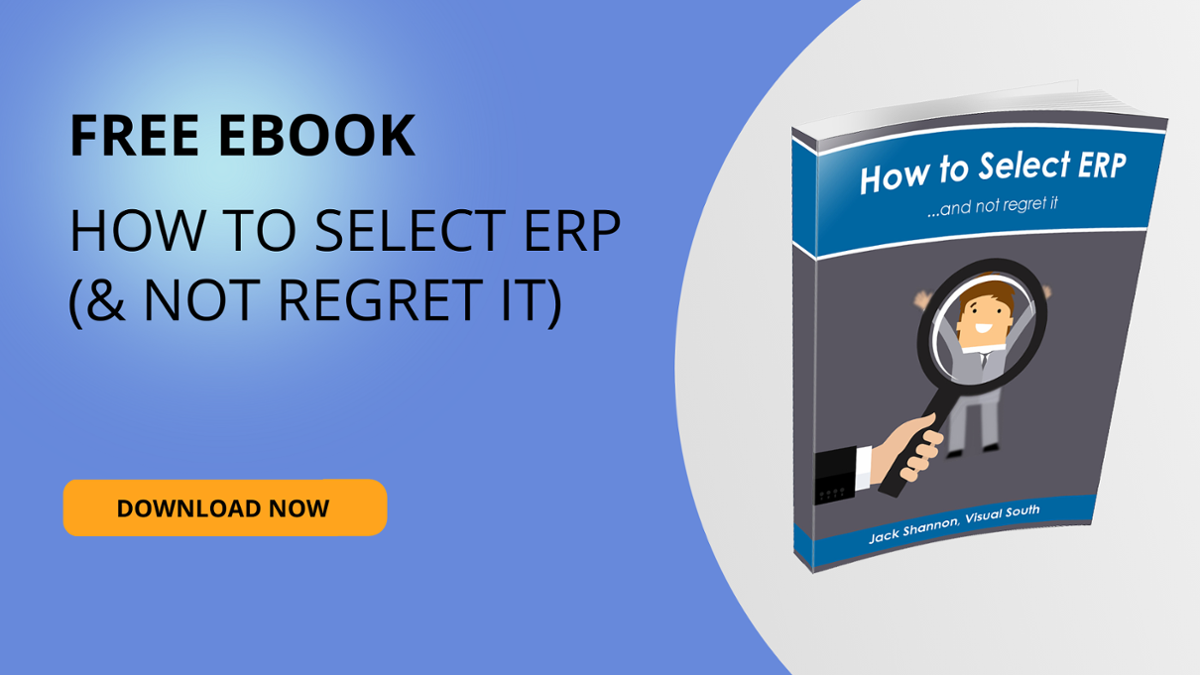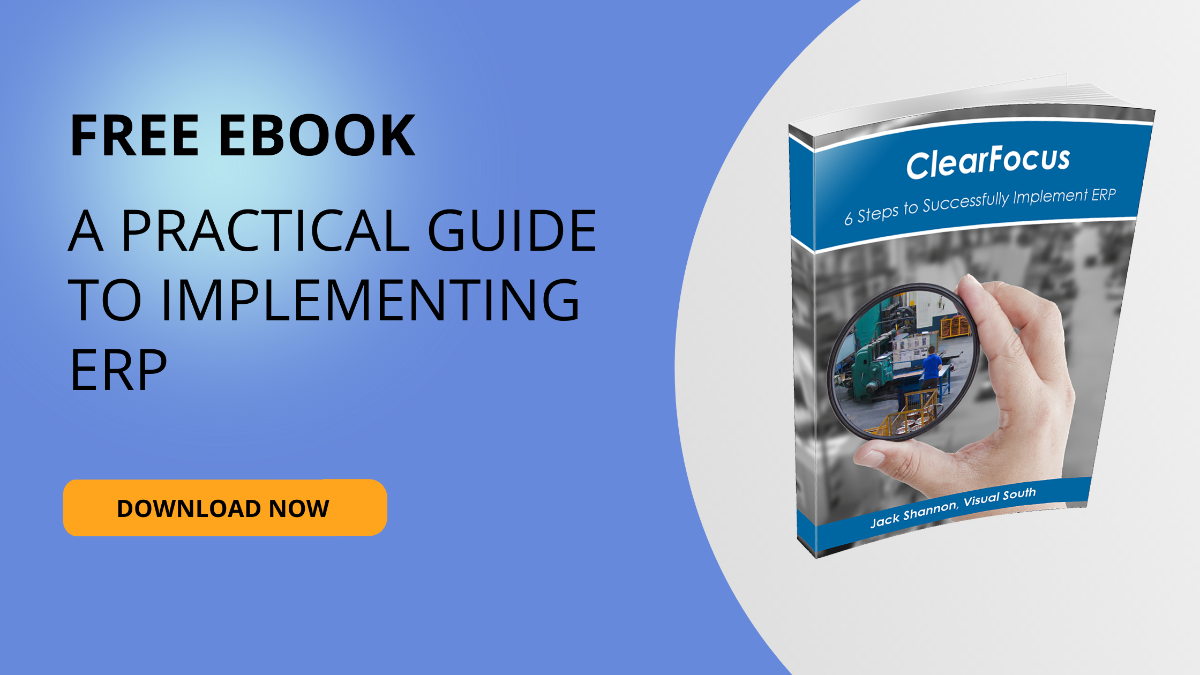Some background before we begin
The process to evaluate and choose an ERP software is not a simple task; as a matter of fact, it is a complex task. Because of the risk and cost, it’s a big decision for a company, big or small, to find and implement an ERP. I have numerous conversations with companies that are going through this selection process, and if they don’t bring up the subject of cost in our first conversation, then I do because it is so important! To help you set a realistic budget for your new ERP system, read below for a list of costs you should plan for.
Software
This is probably the most obvious ERP cost and at the top of everyone’s list. ERP software has different pricing models, but the vast majority fall in one of two buckets: a perpetual license with maintenance or subscription-based model.
VISUAL ERP Demo
Cloudsuite Industrial Demo
First, let’s talk about perpetual with maintenance. The cost for this type of model is a one-time, “up front” fee to license the software. The fee can be determined by a variety of ways, but usually by user, site, device, or some combination thereof. The maintenance portion of this is typically a percentage of the price you paid to license the software. It usually covers bug fixes, software updates, and possibly technical support. Different vendors do it different ways, so it is important to understand what your fee includes. Maintenance is typically renewed annually, so it is an ongoing ERP cost. However, it is not always required to renew each year, so this cost potentially could be avoided (but at quite a bit of risk since you would not be supported by the ERP vendor).
For subscriptions, the software license fee, support, and maintenance are all bundled into one price. The subscription fee is fairly straightforward and as long as you are paying it, you have access to the software and support. The subscription is valid for a term (a common term is 36 months); if you do not renew, you won’t be able to access the software. In a subscription, the ERP vendor typically provides the infrastructure to run the ERP, thus eliminating the need for…
Hardware
If you are choosing the perpetual pricing model, you are most likely going to need hardware—unless you already own infrastructure that will support your ERP. The necessary hardware can vary quite a bit between vendors, so it is important to understand what sort of infrastructure your ERP needs.
Implementation assistance
Most companies require assistance from someone to move off of their existing solution to a new ERP—this is the majority of the cost for ERP implementation. These services are usually provided by the ERP vendor or an implementation partner, and include, but are not limited to: project management, data conversion, training, process engineering, testing, cutover, and post go-live support. These ERP costs can vary widely, because every project is unique. Some businesses are simpler than others, while some companies have more resources.
Related: The Hidden Costs in ERP Implementation
Internal resources
Most companies dedicate resources to an ERP project; while this is not a hard cost like the fees you pay an ERP vendor or implementation partner, dedicating valuable employee time is a cost nonetheless. Understanding what resources you can assign to the project helps get a more complete picture of cost. Sometimes companies can reassign or shuffle employee responsibilities to make sure they are available for the project. This is more common in smaller businesses where people typically wear many hats—versus bigger companies that might have the funding to hire a new resource to manage the project.
Related: Common Structures of an ERP Team
Related: Implementation Roles & Responsibilities: How to Build Your Team
Overlooked costs when implementing ERP systemsThe Visual South team has over 25 years of experience with implementing ERP applications. We have basically seen it all when it comes to ERP implementations and come to recognize the characteristics of successful implementations, as well as the warning signs when an implementation is at risk. The good news is that the typical implementation goes as planned and is successful. But a common challenge that can derail the implementation process is a failure to identify hidden costs. Companies must have a plan to manage those hidden costs. In our decades of experience, one of the highest hidden costs of ERP implementation is the extra internal time involved with an ERP implementation. And as they say, time is money. Top categories of required internal time during ERP implementationsSuccessful ERP implementations require that current employees spend time doing activities that are additive to their normal day-to-day responsibilities in the current business system(s) that are being replaced. These additional activities are commonly overlooked or unplanned for, but the hours stack up and impact business operations…and therefore increase costs. Internal time that often goes unaccounted for during implementations includes:
A solution to avoid hidden costs in ERP implementationSo, how can you estimate this hidden cost during an ERP implementation? The Visual South team developed a matrix that allows our customers to define how many internal hours they think the project will require. The estimates are often quite revealing. The key benefit is that requests for extra internal resources are no longer a surprise. The matrix also calculates a reasonable time frame for implementation, based on what a company wants to do versus what a company is capable of doing, given their resources. This knowledge ensures that proper expectations are set and expectations are managed. Ultimately, our matrix reduces the possibility of a project running longer than expected, due to a lack of available internal resources, and improper expectations about how to accomplish ERP-associated project tasks correctly and on time. |
Ask Cost Questions
Don’t be afraid to bring up ERP costs early and often if you are evaluating different systems. And don’t rely on the ERP vendor to bring it up, because they may not bring it up at all. Asking cost questions will save you a lot of time in your selection process.
Most companies don’t evaluate ERP on a regular basis. If you are looking for ERP and not sure where to start, how about talking to an expert who is not a sales person? Click here to learn more about Bryan Foshee, and sign up for a free phone consultation to discuss your situation.










